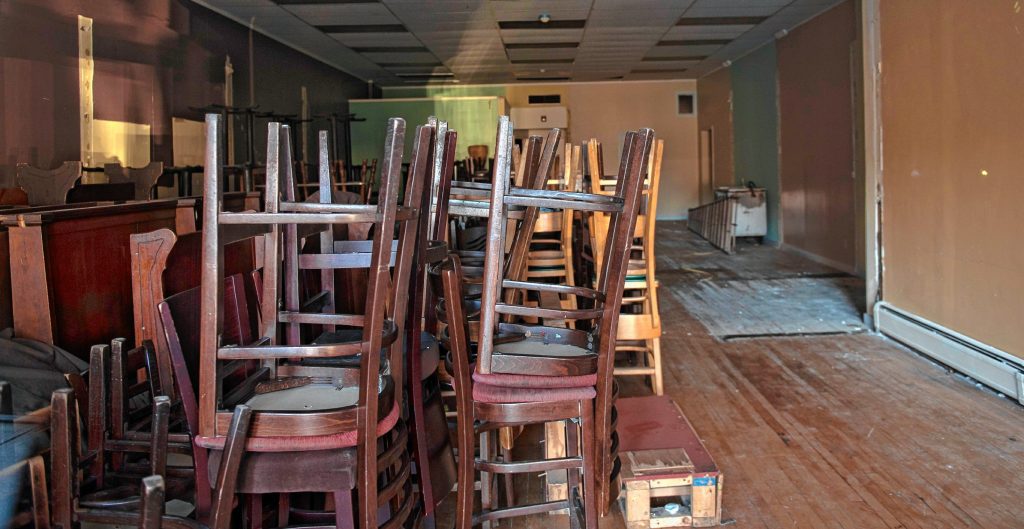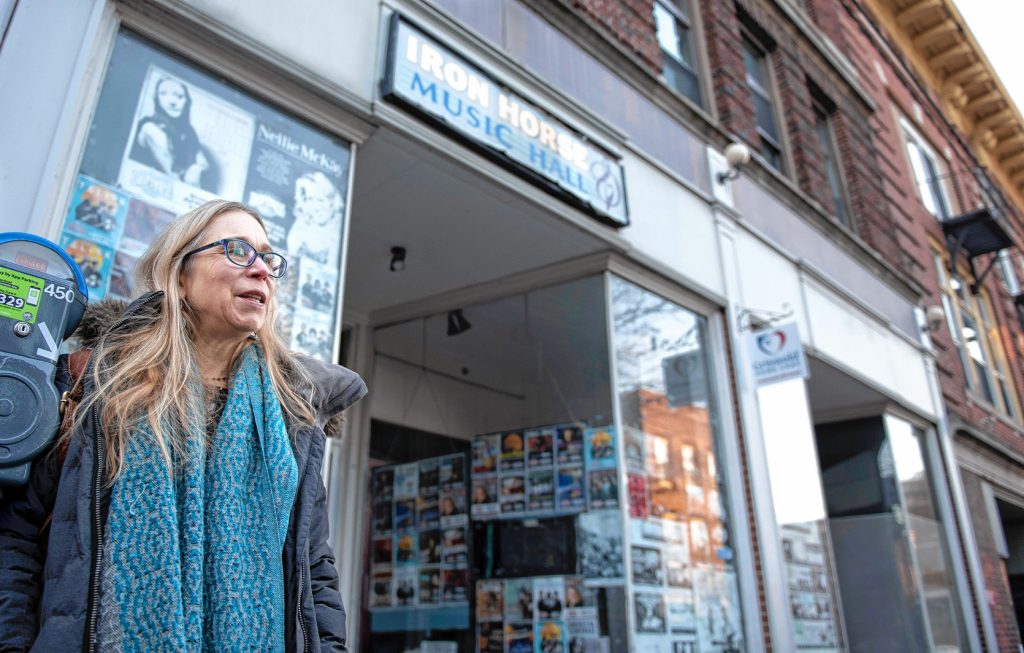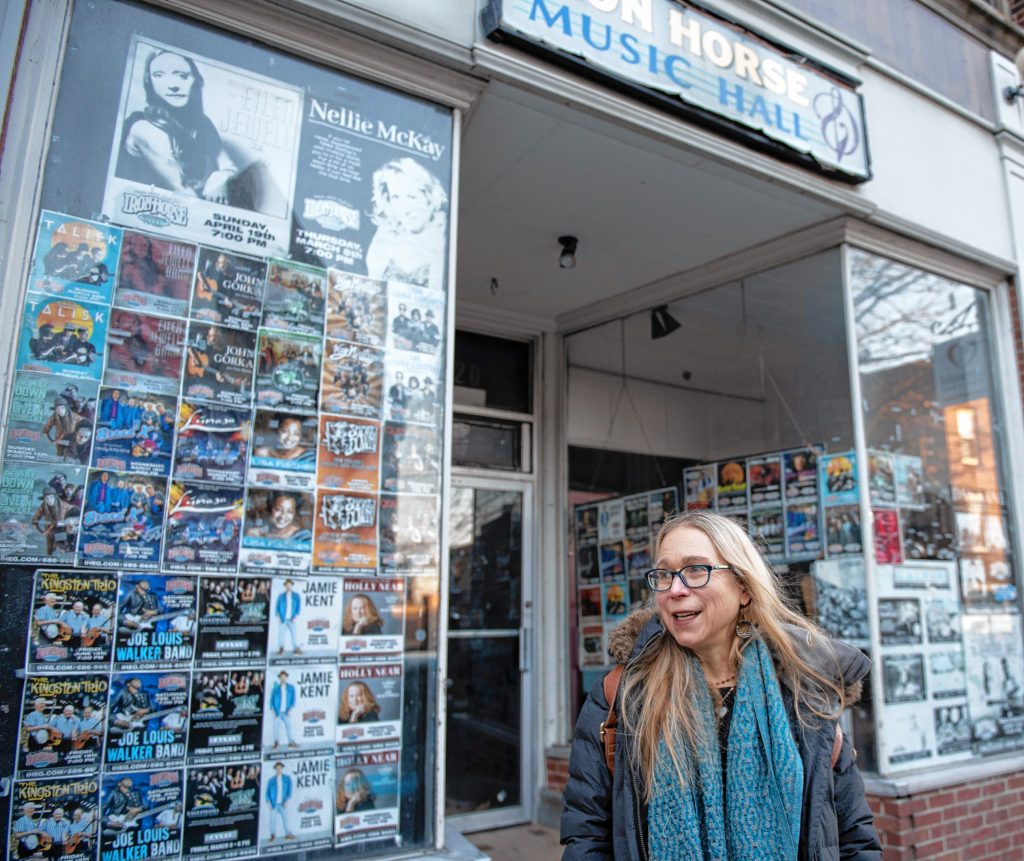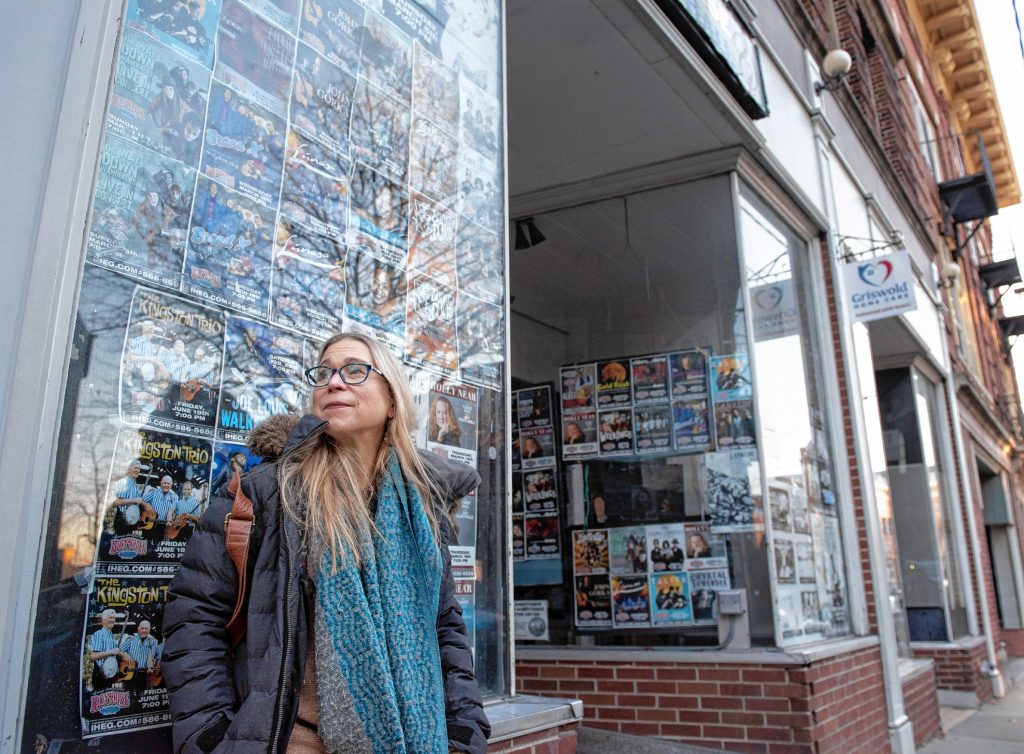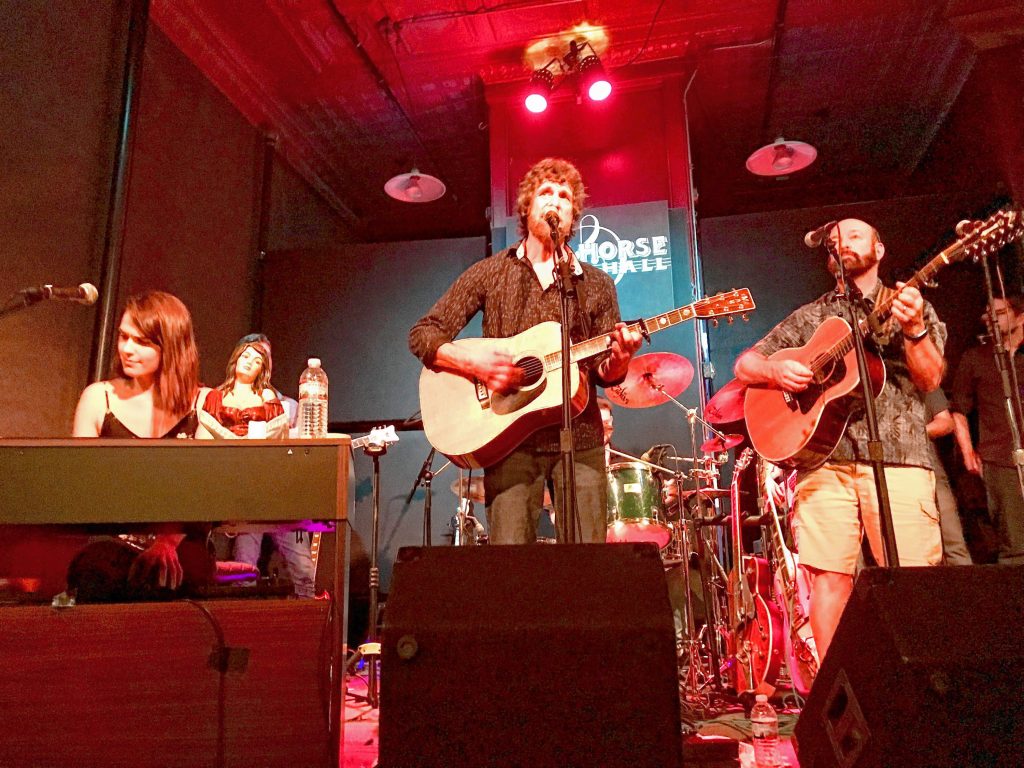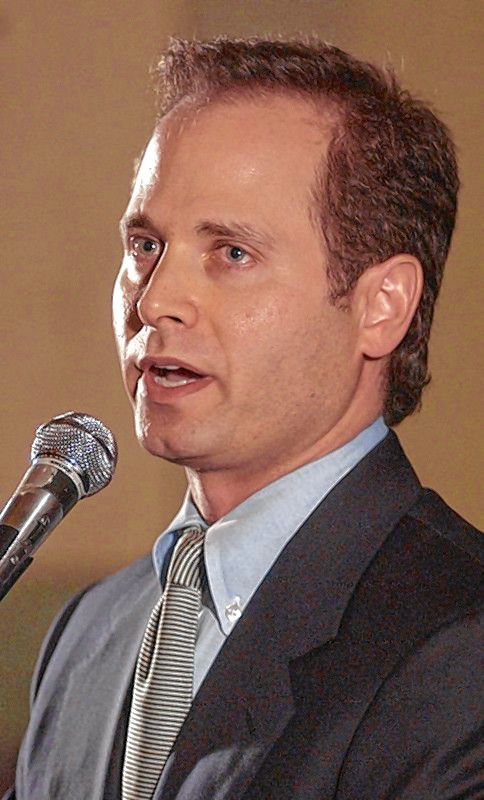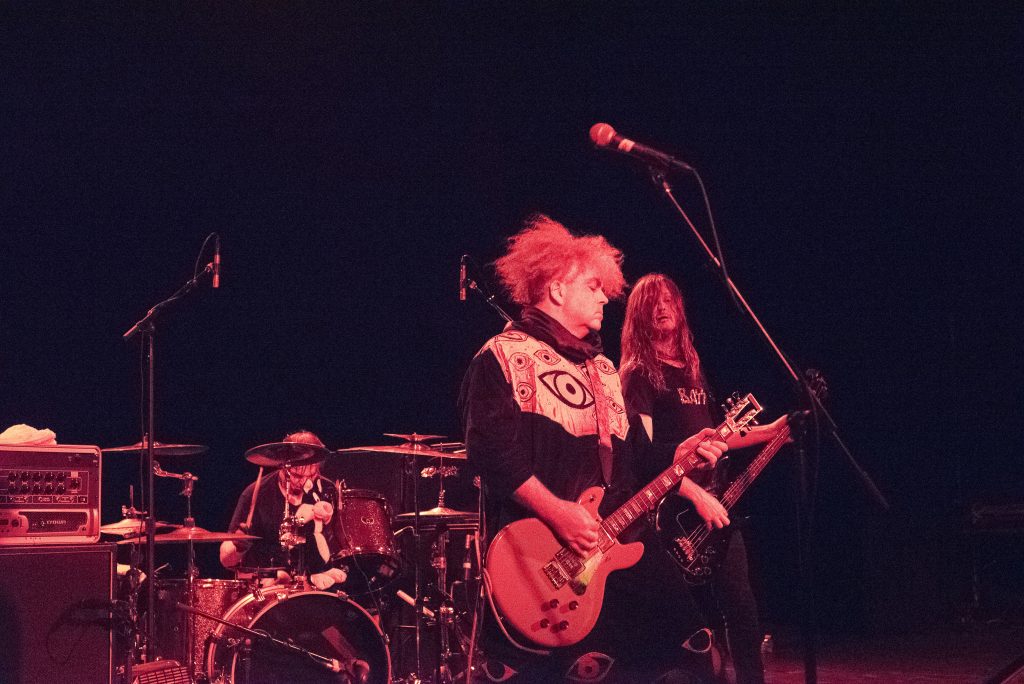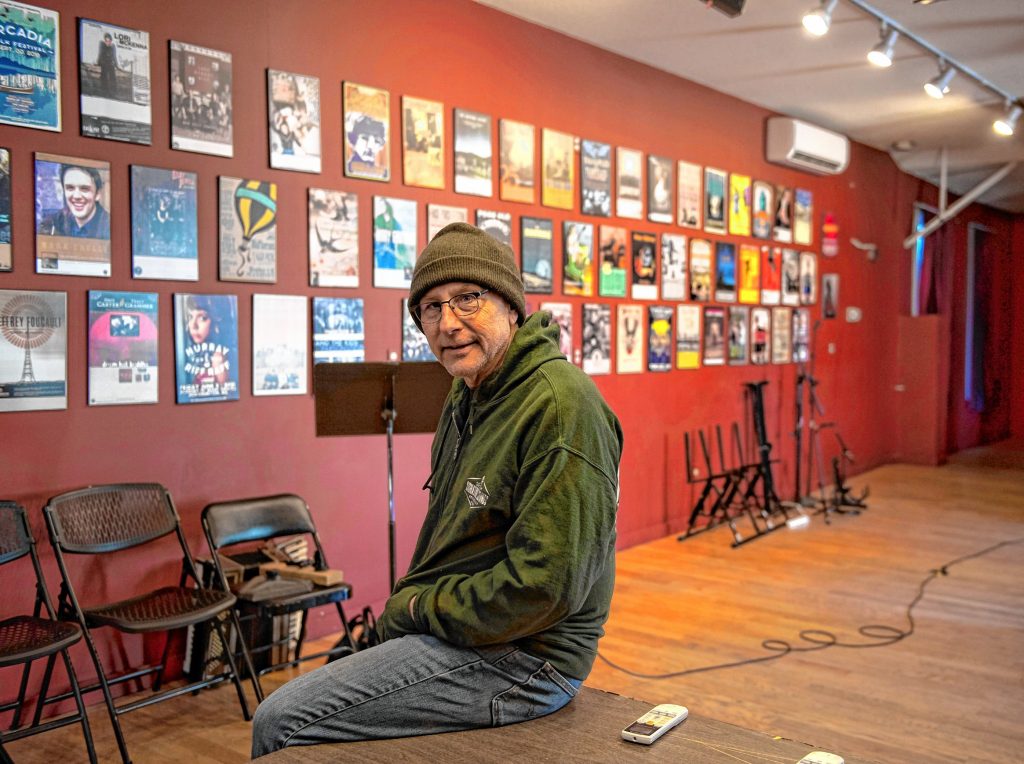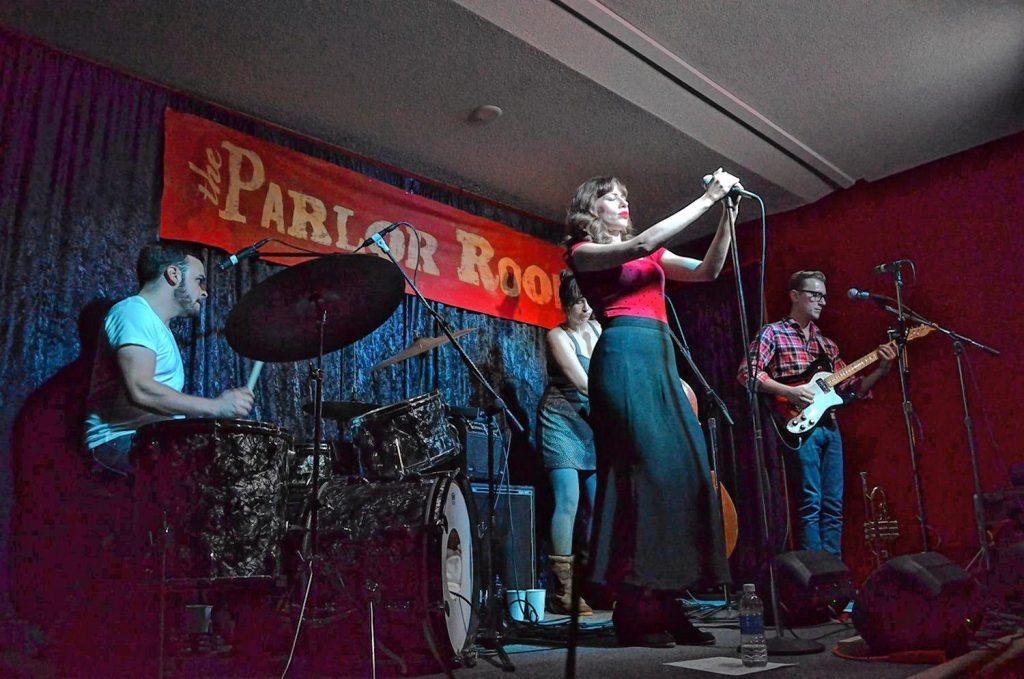When she looks back at how her band first found its footing, Nerissa Nields sees one club in particular at the center of that story: the Iron Horse Music Hall.
From the time The Nields, the Valley folk-rock band, formed in the early 1990s, the Iron Horse became the group’s adopted home, a place “where magic would happen,” said Nields — and a venue she went to countless times simply as a music fan to see a huge range of artists.
The Nields played dozens of gigs at the Horse over the years, from the early 1990s into early 2020, before the pandemic shut everything down for a year and a half. But the group had been scheduled to perform there again in the fall of 2021, and then this year after that initial show was postponed.
But in late summer, they got a call from their manager, Patty Romanoff.
“She said, ‘Everyone’s left the Iron Horse — the club has gone dark,’” Nields said.
The band scrambled to find a new place to play and in October landed at the Drake, the downtown Amherst venue that opened this spring.
It was good gig, Nields says, but the apparent demise of the Iron Horse was still on her mind: “That was devastating to hear. The Iron Horse has been a part of my life for so long.”
More than a year after most venues reopened for live music following the worst of the pandemic, the Iron Horse remains shuttered, never having actually reopened since closing in March 2020 — though for months, beginning last fall, coming shows were listed there, only to be canceled or postponed, or in some cases moved to another venue.
Meanwhile, two other Northampton clubs that are part of the Iron Horse Entertainment Group (IHEG), the Calvin Theatre and Pearl Street Nightclub, have also gone quiet; just two January concerts, by a Led Zeppelin tribute band, are listed at the Calvin, and Pearl Street’s schedule is blank.
That scenario has unfolded against the opening of two new good-sized music venues in the Valley in the past year, the Drake and the Bombyx Center for Arts & Equity in Florence. It’s also been a pretty busy year at Race Street Live, the music club at Gateway City Arts in Holyoke, while The Parlor Room, the cozy Northampton listening room, has expanded its schedule as well.
Where the IHEG once dominated the local music scene and made Northampton its center, newer clubs in outlying communities, some built on a nonprofit model, have transformed how music is presented in the Valley. Music has also become a bigger part of presentations at the Academy of Music, in part from concerts produced by DSP shows, a, Ithaca, New York-based business that also runs Race Street Live.
The nonprofit model appears to be gaining steam: The Parlor Room is transitioning to a nonprofit, while CitySpace in Easthampton, the nonprofit group that manages the city’s old Town Hall, runs the Blue Room, a renovated multipurpose venue on the ground floor of the building. In addition, CitySpace is overseeing the remodeling of the upper floor into a 350-seat performance hall.
“So much has changed since we started,” said Jim Olsen, president of Signature Sounds Recordings, which opened The Parlor Room 10 years ago to supplement its record business. “[IHEG] was pretty much the only game in town then. Now things are much more spread out [geographically], and there’s no one person or company that dominates everything.”
IHEG owner Eric Suher, who bought the Iron Horse in 1995, did not return phone calls or a text message seeking comment on what’s happened at his venues or what he might have planned for them in the future. A number of musicians who had been scheduled to play at the Iron Horse have also been left wondering — as well as lamenting the apparent loss of the venerable club, which in 2019 celebrated its 40th anniversary.
“Not many clubs last that long,” Olsen said. “It’s a tough business to be in. But I certainly miss it. I couldn’t tell you how many shows I saw there over the years … it was a big part of why I decided to move to this area.”
A comeback that didn’t happen
In August 2021, Jim Neill, the former communications director for IHEG, said the organization had booked almost 30 shows between the Iron Horse and the Calvin Theatre for September and October, and that both venues, as well as the Pearl Street Nightclub, were on target to reopen “with full capacity and any [COVID] regulations that may be in place by then.”
That didn’t happen. The Calvin hosted some shows at first, including concerts originally scheduled for the Iron Horse, but the schedule fell off dramatically this year, with tribute bands playing most of the gigs. The Iron Horse remained closed, and Pearl Street held just a few concerts before shutting down again — adding to a number of other vacant properties Suher has in the city.
Mountain Park, the outdoor music stage in Holyoke that Suher owns, has gone unused for several years as well.
Singer-songwriter Jamie Kent, a Northampton native who moved to Nashville, Tennessee several years ago, had been slated to play a solo show at the Iron Horse in the fall of 2021. About two weeks before the gig, he says, he got a call from the club’s former booking agent, Brendan Leith, that his gig was being moved to the Calvin because of, as Kent best recalls, “shifting state regulations concerning COVID.”
“I think the idea was that people could be spread out more in the Calvin, and no one would be close to the stage,” Kent said. (The Calvin seats 1,355 people compared to 170 in the Iron Horse.)
Kent suspects the Iron Horse also had trouble rehiring kitchen and wait staff, the same issue that bedeviled restaurants all across the country in the wake of the pandemic — a huge problem for the Horse, whose revenues depended heavily on selling food and drink.
“I think the whole situation may have been a perfect storm for them,” he said.
Staffing shortages may have been exacerbated by complaints from former IHEG employees who accused Suher in 2019 of failing to pay them on time, not meeting overtime wages, and of having no sick leave policy. In 2021, the state attorney general’s office fined him $100,000 in the case, which Suher settled this year by paying $39,000 in penalties and back pay for ex-employees, without admitting wrongdoing.
Kent said he’s had a good relationship with Suher and felt he’d treated him fairly. “But I imagine the legal issues he’s had haven’t made things easier for him,” he noted.
In a separate case filed this past August, the American Society of Composers, Authors and Publishers (ASCAP) sued the Calvin Theatre and six other music venues in federal court in Springfield for copyright infringement; the suit alleged Suher had failed to pay royalty licensing fees for songs performed by tribute bands at the Northampton venue.
And in September, New England Public Media reported that a union representing stagehands at the Calvin filed a complaint with the National Labor Relations Board, claiming unfair labor practices after Suher allegedly abandoned contract negotiations in July.
Dave Simons, who fronts Muswell Hillbillies, the Hadley band that has performed the music of The Kinks, Neil Young, Tom Petty, and most recently The Beatles, said his group had been scheduled to play the Iron Horse in the summer of 2020 after doing several previous shows there. That gig was wiped out by the pandemic, but Simons got in touch with Brendan Leith this summer about a return show.
“He said we’d be better off looking elsewhere,” said Simons, adding that he got a sense from Leith, who now books music for City Winery in Boston, that “the club was not going to be reopening anytime soon.”
A new playing field
Muswell Hillbillies, like The Nields, ended up playing the Drake this fall, and Simons says the band enjoyed the new venue. Like the Bombyx Center, the Drake features a wide range of music, from both local and touring artists, and community events such as open mics and dance parties. The club, which can seat 170 and expand to 240 by opening up the dance floor, is run by the nonprofit Downtown Amherst Foundation.
The Bombyx Center, which can seat 330, is also a community center, home to two church groups, a preschool, a range of workshops, and art exhibits; the center rents space to other organizations, too. As co-founder Kyle Homstead told the Gazette last year, “We’re not just going to be relying on music.”
Nevertheless, some musicians who were once mainstays at the Iron Horse, such as singer-songwriters Loudon Wainwright and Shawn Colvin, and jazz duo Tuck & Patti, performed at either the Drake or Bombyx earlier this year.
John Sanders, who books DSP shows at Race Street Live, the Academy of Music and the Pines Theater, says new venues such as the Drake and Bombyx have likely made the local music scene that much more competitive, even with IHEG not in the picture. Also in the mix are the new Marigold Theater in Easthampton and Hawks & Reeds Performing Arts Center in Greenfield, he notes.
And with the Calvin, the area’s biggest venue, largely shuttered, the region may not have the ability any longer to draw larger, marque bands, Sanders notes, leaving the other clubs to duke it out for smaller touring acts. (The Academy of Music seats 800 but has never been a full-time music venue, despite its name, while Race Street Live has a capacity of 500.)
There’s this to consider as well, Sanders says: The music business has still not recovered from the pandemic.
“It’s been difficult to get the crowds back,” said Sanders, who booked music for IHEG for about 15 years before moving to DSP in 2015. “We’ve had our share of shows where the audience was not what we anticipated … the future of Race Street Live is kind of up in the air at the moment.”
On the other hand, both he and Olsen say there’s more cooperation between venues these days. Signature Sounds and DSP have co-produced a number of shows, Signature has staged concerts at Hawks & Reed, and DSP recently announced some December shows at the Drake. That kind of cooperation, Olsen notes, did not take place during the days when IHEG ruled the musical roost.
Burns Maxey, president of CitySpace in Easthampton, says she’s encouraged by the new model. She believes the pandemic forced performance venues to think differently and more cooperatively about how to make space available for artists, from newcomers to established performers.
“We’re really committed to working with artists to help them develop their shows and their audiences,” Maxey said. “We’re here to be a forum for what the community wants to see in the arts.”
Given all these changes, it’s hard to see IHEG making a comeback, Olsen says. “I think the longer those [venues] remain closed, the harder it’s going to be to reopen them,” he said.
Could a new owner turn them around if Suher were to sell them? “My guess is that, based on what Eric has done with his other properties, he’s going to hold on to his clubs,” Kent said.
And Simons, who said he’s grateful for the music Suher has brought to the area over the years, said he’d simply like to hear what his plans are: “I think it could help if he just spoke to the community about what’s going on.”
Steve Pfarrer can be reached at spfarrer@gazettenet.com.

